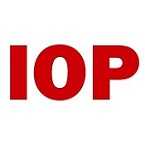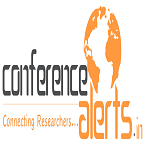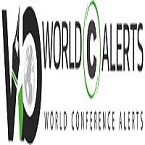About the Conference
Vaccines R&D continues to drive transformative advancements in global healthcare, paving the way for innovative solutions to prevent infectious diseases and improve public health outcomes. The 9th International Conference on Vaccines, Immunology, and Clinical Trials, scheduled for March 24-25, 2026, in Paris, France, will bring together leading researchers, scientists, healthcare professionals, and industry experts to explore the latest breakthroughs in vaccine development, immunotherapy, and clinical research. With the theme “Vaccines & Immunology: Catalysing Innovation for a Healthier Tomorrow” this conference provides a dynamic platform to discuss emerging technologies, novel vaccine candidates, regulatory challenges, and collaborative strategies shaping the future of immunology and clinical trials worldwide.
Why to Attend:
The aim of this event is to provide a dynamic platform where ideas, innovations, and advancements in vaccines, immunology, and clinical trials can be shared across the global scientific community. This year, we have brought together leading experts, researchers, and professionals from around the world, each selected for their outstanding contributions to advancing vaccine research, immunotherapy, and clinical development. The program has been carefully designed to meet the diverse needs of registrants and stakeholders, from scientists and clinicians to pharmaceutical leaders and policymakers. We are excited to foster meaningful engagement through keynote lectures, panel discussions, interactive workshops, and Q&A sessions. Our goal is to create numerous opportunities for attendees to exchange knowledge, collaborate on future research, and expand their professional networks, forging lasting partnerships that will shape the future of immunization and global health.
Target Audience
-
Immunotherapists
-
Microbiologists
-
Virologists
-
Epidemiologists
-
Biostatisticians
-
Pharmacovigilants
-
Toxicologists
-
Clinical Researchers
-
Trial Coordinators
-
Vaccine Developers
-
Pathologists
-
Biotechnologists
-
Immuno-oncologists
-
Health Economists
-
Molecular Biologists
-
Serologists
-
Immunopathologists
-
Bioinformaticians
-
Bio manufacturers
-
Clinical Trialists
-
Regulatory Scientists
-
Translational Researchers
-
Public Health Experts
-
Vaccine Strategists
Sessions and Tracks
Track:-1 Advancements in Vaccine Research and Development
This session explores the latest breakthroughs in vaccine development, from preclinical research to clinical trials. Leading experts will discuss novel vaccine platforms, including mRNA and DNA vaccines, as well as advancements in adjuvants and delivery systems. Attendees will gain insights into overcoming challenges in vaccine efficacy, stability, and safety, along with the regulatory hurdles faced during development. Special focus will be given to the rapid development of vaccines for emerging infectious diseases, including lessons learned from the COVID-19 pandemic.
Track:-2 Immunotherapy and Personalized Medicine
Immunotherapy continues to be a promising treatment option for many diseases, particularly cancer. This session will delve into the intersection of immunology and clinical trials, focusing on the development of personalized vaccines and immunotherapies. Experts will discuss the integration of biomarkers in treatment regimens, as well as novel strategies for enhancing immune response. The session will also cover the role of immune checkpoint inhibitors, CAR-T cells, and other immunotherapeutic agents in clinical settings.
Track:-3 Clinical Trials Design and Methodologies
A crucial element in vaccine and drug development is the design of clinical trials. This session will cover the latest methodologies in trial design, including adaptive trials, blinded studies, and the use of real-world evidence. Discussions will focus on overcoming challenges in trial recruitment, retention, and ensuring diverse patient populations. Attendees will also explore the regulatory frameworks guiding the approval process and learn how to improve the quality of data in clinical trials.
Track:-4 Vaccine Safety and Pharmacovigilance
Ensuring vaccine safety is vital for public confidence and global health. This session will focus on the importance of pharmacovigilance in monitoring vaccine safety post-market. Experts will address common safety concerns, adverse events, and the role of data reporting systems in identifying potential risks. The session will also explore global safety monitoring systems, regulatory guidelines, and strategies for enhancing post-approval surveillance.
Track:-5 Immunology of Infectious Diseases
This session will focus on the immune response to a variety of infectious diseases, including viral, bacterial, and parasitic infections. Experts will present research on the mechanisms of immunity, including innate and adaptive immune responses. The session will cover the role of immunology in the development of vaccines and therapeutic interventions for diseases such as HIV, malaria, and tuberculosis, with a special focus on overcoming global health challenges.
Track:-6 Emerging Infectious Diseases and Vaccine Development
The rise of new infectious diseases continues to pose significant challenges to public health worldwide. This session will address the development of vaccines for emerging pathogens, including viruses like Zika, Ebola, and SARS-CoV-2. Experts will discuss strategies for rapid vaccine development, lessons learned from past outbreaks, and the need for global collaboration in response to future threats.
Track:-7 Global Immunization Strategies and Policy
Vaccination remains one of the most cost-effective public health interventions globally. This session will examine global immunization strategies and the role of policy in expanding vaccine access. Speakers will discuss the role of governments, non-governmental organizations, and international bodies like the WHO in driving vaccination campaigns, tackling vaccine hesitancy, and addressing equity in vaccine distribution.
Track:-8 Vaccine Manufacturing and Distribution
This session will explore the complexities of vaccine manufacturing, from initial production to distribution. Topics will include scaling up production, ensuring quality control, and overcoming logistical challenges in delivering vaccines to remote or underserved areas. Experts will also address the economics of vaccine production and the role of public-private partnerships in ensuring global vaccine supply.
Track:-9 Vaccine Delivery Systems: Innovations and Challenges
Vaccines need to be delivered effectively to achieve their intended outcomes. This session will focus on new and emerging vaccine delivery systems, including microneedles, nanoparticle-based delivery, and novel adjuvants that improve immune response. Presenters will discuss how these innovations can enhance vaccine efficacy and ease of administration, particularly in low-resource settings.
Track:-10 Ethical Considerations in Vaccine Development and Distribution
The development and distribution of vaccines raise several ethical questions, particularly regarding informed consent, equitable access, and the balance of individual rights versus public health. This session will explore these ethical challenges, with a focus on the ethical implications of vaccine mandates, clinical trial participation, and ensuring equitable access to vaccines, particularly in low-income countries.
Track:-11 Role of AI and Big Data in Vaccine Research
Artificial Intelligence (AI) and big data analytics are transforming vaccine research and development. This session will explore the role of these technologies in accelerating vaccine discovery, optimizing clinical trials, and enhancing data analysis. Experts will discuss how machine learning algorithms and big data are being used to predict vaccine efficacy, monitor patient responses, and streamline clinical trial design.
Track:-12 Vaccine Hesitancy and Public Perception
Vaccine hesitancy remains a critical barrier to achieving herd immunity and protecting global health. This session will examine the psychological, social, and cultural factors driving vaccine hesitancy, as well as strategies for addressing misinformation and building public trust in vaccines. Presenters will share successful communication strategies and interventions that have been used to promote vaccine acceptance.
Track:-13 Advances in Pediatric Vaccines
Pediatric vaccines are essential in protecting children from preventable diseases. This session will focus on the latest advancements in pediatric immunization, including vaccines for new and emerging pathogens, as well as strategies for improving vaccination coverage in young populations. Experts will discuss the challenges of ensuring vaccine safety and efficacy in children and how global health initiatives are addressing these challenges.
Track:-14 Vaccine Development for Cancer Immunotherapy
Cancer immunotherapy has gained significant attention in recent years, and vaccines play an important role in this area. This session will focus on the development of cancer vaccines, including tumor-specific vaccines and therapeutic cancer vaccines. Presenters will discuss the challenges of designing effective cancer vaccines, the role of immune checkpoint inhibitors, and the latest clinical trial outcomes.
Track:-15 Translational Immunology and Vaccine Development
Translational immunology bridges the gap between basic research and clinical applications. This session will explore how discoveries in immunology are being translated into novel vaccine candidates. Topics will include the role of immunological biomarkers in vaccine development, understanding immune responses at the molecular level, and the potential for new vaccine platforms to address a range of infectious diseases.
Track:-16 Role of Adjuvants in Vaccine Efficacy
Adjuvants play a crucial role in enhancing the immune response to vaccines. This session will cover the latest research on vaccine adjuvants, including novel adjuvant formulations and their application in improving vaccine efficacy. Experts will discuss how adjuvants can improve responses to challenging pathogens and the importance of understanding the mechanisms of adjuvant action.
Track:-17 Vaccine Equity and Access in Low-Resource Settings
Equitable access to vaccines remains a significant challenge, particularly in low- and middle-income countries. This session will focus on strategies to improve vaccine access, including low-cost production, effective distribution channels, and the role of international partnerships. Presenters will also discuss the importance of building local capacity to ensure sustainable vaccine access.
Track:-18 Regulatory Approaches in Vaccine Development
Regulatory agencies play a key role in the approval of vaccines, ensuring their safety, efficacy, and quality. This session will explore the regulatory landscape for vaccine development, including the role of agencies such as the FDA, EMA, and WHO. Experts will discuss regulatory challenges in vaccine approval, the impact of expedited approval processes, and the importance of post-marketing surveillance.
Track:-19 Vaccine Development for Vector-Borne Diseases
Vector-borne diseases such as malaria, dengue, and Zika continue to present significant public health challenges. This session will focus on the development of vaccines for these diseases, examining the scientific, logistical, and ethical challenges involved. Presenters will discuss the latest vaccine candidates, ongoing clinical trials, and the potential for new vaccine platforms to target vector-borne pathogens.
Track:-20 Innovations in Vaccine Cold Chain and Storage
Maintaining the cold chain during vaccine storage and transport is crucial for ensuring vaccine efficacy. This session will explore innovations in cold chain technology, including new refrigeration solutions, temperature-monitoring devices, and transport systems that ensure vaccines remain effective. Experts will discuss the challenges and opportunities in improving vaccine storage, particularly for vaccines in low-resource settings.
Participant Options & Benefits
The Vaccines R&D 2026 offers a range of participant options and benefits designed to enhance your conference experience and maximize your professional development. Participants can choose from the following options:
1.Presenter Registration
-
Opportunity to present your ground breaking research findings through oral or poster presentations.
-
Receive valuable feedback from peers, experts, and thought leaders in the fields of immunology, vaccines, and clinical trials.
-
Publication opportunities in conference proceedings or affiliated journals, enhancing your research visibility.
2.Delegate Registration
-
Access to all scientific sessions, keynote lectures, and interactive workshops led by global experts.
-
Networking opportunities with professionals, researchers, and leaders from the vaccine and immunology sectors.
-
Conference materials, including abstract books, program schedules, and exclusive content from the sessions.
3.Student Registration
-
Special rates for students currently enrolled in academic programs.
-
Access to educational sessions and networking opportunities with industry leaders and researchers.
-
Opportunity to present research projects through poster presentations and gain exposure in the field.
4.Industry Registration
-
Exhibition space to showcase innovative products, services, and technologies in the vaccine and immunology sectors.
-
Networking opportunities with leading healthcare professionals, researchers, and decision-makers.
-
Increased brand visibility among a targeted audience of professionals from the global immunology, pharmaceutical, and healthcare industries.
5.Virtual Attendance
-
Access to live-streamed sessions and on-demand recordings, so you can participate from anywhere in the world.
-
Engage in interactive Q&A sessions and virtual networking events, fostering global collaboration.
-
Flexibility to attend sessions at your convenience while maintaining professional engagement.
Benefits for Participants:
-
Stay updated on the latest advancements in vaccine research, immunology, and clinical trial methodologies.
-
Expand your professional network and form valuable connections with experts, researchers, and industry leaders.
-
Enhance your knowledge and skills through interactive workshops, educational sessions, and global lectures.
-
Explore career opportunities, collaborations, and partnerships in the rapidly evolving fields of vaccines and immunology.
-
Earn continuing education credits (CME/CPD) to boost your professional credentials.
Abstract Review Process
Abstract Review Process for Vaccines R&D 2026
Submission and Initial Review:
-
Submit your abstract through the official conference submission portal.
-
The organizing committee will review all submitted abstracts based on relevance to the conference theme, originality, and scientific quality.
Acceptance and Notification:
-
Once the review is completed, you will receive an Abstract Acceptance Letter if your submission is accepted.
-
Accepted abstracts will require the presenting author to register for the conference.
Registration Requirements:
-
A single registration permits only one person to attend the conference.
-
If you have co-authors who wish to attend, they need to register and pay independently.
-
Co-authors will receive a 15% discount on the Non-Presenter’s (Listener’s) Registration Fee.
Certification:
-
Certificates will be issued to co-authors only upon their registration and payment for the conference.
Discount and Communication:
-
To avail of the co-author discount, make sure to communicate with the organizing committee prior to registration.
Important Information for Co-Authors:
-
Each co-author attending the conference must register and pay the registration fee independently.
-
Co-authors are eligible for a 15% discount on the Non-Presenter’s (Listener’s) Registration Fee.
-
Ensure prior communication with the organizing committee to facilitate the discount.
-
Certificates will be provided to registered co-authors.
For further information or assistance, please contact the organizing committee.
Visa Process
Visa Process for Vaccines R&D 2026
Planning to attend Vaccines R&D 2026 in Paris, France, March 24-25, 2026. Here's a comprehensive guide to help you navigate the visa process smoothly.
Step-by-Step Guide to the Visa Application Process
Step 1: Registration
-
Complete your registration for Vaccines R&D 2026. Once your registration is confirmed, you will receive an official invitation letter. This letter is essential for supporting your visa application.
Step 2: Determine the Type of Visa
-
Most international delegates will require a short-stay Schengen visa for France. This visa permits stays of up to 90 days within a 180-day period for tourism, business, or attending conferences.
Step 3: Gather Required Documents
Prepare the necessary documentation for your visa application. Typical requirements include:
-
A valid passport (with at least three months validity beyond your intended departure date).
-
Completed visa application form.
-
Official invitation letter from Vaccines R&D 2026.
-
Travel itinerary (flight reservations).
-
Proof of sufficient financial means (bank statements, proof of income).
-
Travel insurance covering medical expenses and repatriation for the entire duration of your stay.
Step 4: Schedule a Visa Appointment
-
Contact the French consulate or embassy in your country to schedule an appointment for your visa application submission. Be sure to book this appointment well in advance, as appointment slots can fill up quickly, especially during peak travel seasons.
Step 5: Attend the Visa Interview
-
On the day of your appointment, arrive at the consulate or embassy with all required documents. During the interview, you may be asked about the purpose of your visit, your plans during your stay, and your ties to your home country to ensure that you intend to return after the congress.
Step 6: Wait for Visa Approval
-
After your interview, the processing time for a Schengen visa typically ranges from 10 to 15 days. It is advisable to apply at least one month before your planned departure to allow sufficient time for processing.
Step 7: Collect Your Visa
-
Once your visa is approved, you will be notified to collect your passport with the visa sticker affixed. Double-check the visa details for accuracy and familiarize yourself with any specific entry requirements.
Additional Tips:
-
Early Preparation: Start your visa application process as early as possible to avoid any last-minute issues.
-
Accurate Documentation: Ensure all documents are complete and accurate to prevent delays in processing.
-
Travel Insurance: Make sure your travel insurance policy meets Schengen requirements, including coverage for medical emergencies and repatriation.
By following these steps, you can ensure a smooth and hassle-free visa application process. Register now and prepare to join us in Paris, France for an inspiring and informative gathering of minds at Vaccines R&D 2026!
We look forward to welcoming you to Paris, France!
Market Analysis
The Vaccines R&D 2026 conference is set to attract professionals from immunology, vaccine development, clinical trials, and the pharmaceutical sector. The global vaccine market, valued at USD 58.4 billion in 2023, is projected to grow rapidly, driven by innovation in vaccine research and the demand for global health preparedness, especially post-pandemic. Target audiences include researchers, healthcare professionals, pharmaceutical companies, government agencies, NGOs, students, and industry stakeholders.
The competitive landscape features prominent events like the World Vaccine Congress and Vaccine Technology Conference, but Vaccines R&D 2026 stands out by focusing on cutting-edge R&D, hands-on workshops, and bridging academia with industry perspectives. The event’s strategic location in Paris provides a unique advantage, drawing professionals from around the globe.
Key trends include advancements in mRNA technology, emerging infectious diseases, and evolving vaccine regulations. Sponsorship opportunities are abundant, with potential partners such as major pharmaceutical companies, biotech startups, and Clinical Research Organizations (CROs).
Marketing strategies include digital campaigns, collaborations with academic and industry leaders, early-bird promotions, and engaging thought leaders to build excitement. Challenges include competition from other events and the potential impact of global health uncertainties, but the hybrid model can address these concerns.
-
Market Trends:Key trends fueling the vaccine market include innovations in mRNA technology, vaccine preparedness in response to emerging diseases, and evolving global health initiatives. These trends create strong demand for conferences like Vaccines R&D 2026 to share cutting-edge research and development insights.
-
Sponsorship Opportunities:Sponsorship options are available for pharmaceutical giants, biotech startups, and Clinical Research Organizations (CROs) to promote innovations and showcase their work in vaccine R&D.
-
Marketing Strategy:Digital marketing campaigns, early-bird registration, and strategic partnerships with academic institutions and industry leaders will help drive attendance and visibility for the conference.
-
Challenges:Challenges include competition from other conferences and potential disruptions due to global health concerns. Offering virtual participation can help mitigate these challenges.
Conclusion
Vaccines R&D 2026 is poised to be a leading platform for sharing innovations in vaccine research, offering a unique blend of academic and industry engagement, and fostering global collaboration in the vaccine sector.


















